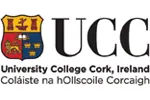

Ireland
University College Cork (UCC)| The award | How you will study | Study duration | Course start | Domestic course fees | International course fees |
|---|---|---|---|---|---|
| HDip | Full-time, Part-time | 1 - 2 year | September | - | - |
Overview
The HDip Arts: Study of Religions gives you an intensive course in the study of religions. The course will appeal to those who have a degree, but have not previously studied religions to degree level.
You'll select modules drawn from the undergraduate course 'Religions and Global Diversity'. Through this programme, you'll have access to research-informed teaching in a variety of religious traditions such Hinduism, Buddhism, Islam, Christianity and East Asian religions and in methods and theories in the academic, cross-cultural study of religions.
Registration with the Teaching Council:For applicants who are taking the Higher Diploma with a view to Teaching Council subject registration, the Higher Diploma in Arts English is recognised by the Teaching Council for the purposes of a teaching subject at post primary level.
IMPORTANT NOTE: Please note that the Higher Diploma in Arts programme is NOT the teacher training programme. Graduates must complete the Professional Master of Education to qualify as a secondary school teacher. Please see www.ucc.ie/en/pec01for further details.
Course Details
The Higher Diploma in Arts shall consist of modules to the value of 60 credits taken from a range of existing 2nd and 3rd Arts modules in the relevant subject.
Over the year, you will study a range of religious traditions and approaches to the study of religions through the following modules: (modules are 10 credits unless otherwise indicated).
Dissertation in the Study of Religions: offers supervised research in any area you're specially interested, whether or not it's been covered in the HDip programme.
As a HDip student you can take, with the permission of the department, up to 10 credits of religion-related modules in other departments: e.g. Asian studies, folklore, sociology, history, philosophy, classics, history of art. You can study a language such as Chinese, Japanese or Korean.
Further details on themodules are available in the: Book of Modules
Registration with the Teaching Council:For applicants who are taking the Higher Diploma with a view to Teaching Council subject registration, the Higher Diploma is recognised by the Teaching Council for teacher subject registration. In general, if you wish to qualify with Religion as a teaching subject, you are advised to refer to the school curriculum and match the modules to that broad field. Modules are chosen in consultation with the programme coordinator in September.
Students wishing to satisfy Teaching Council requirements will take 60 credits of RG courses (selected in consultation with the Programme Coordinator) plus ED6319.
Many subjects have discipline-specific requirements and you are advised to check the requirements for the subject area by consulting the following:
Fact File
Course Code: CKA27 Full-time; CKA28 Part-time
Course Title: Religion - Study of Religions
College: Arts, Celtic Studies and Social Sciences
Duration: 1 year Full-time; 2 years Part-time
Teaching Mode: Full-time, Part-Time
The part-time option will be taught during weekday working hours over 2 year
Qualifications: HDip in Arts
NFQ Level: Level 8
Costs: 2017/2018 Irish/EU EUR 6,000 full-time; EUR 3,000 per year part-time
2016 Entry Requirements: The Higher Diploma in Arts is intended for those who already have a degree, preferably in the area of Arts or the Sciences
Closing Date: See details in application procedure section below
Next Intake: 11 September 2017
Course Practicalities
The Higher Diploma in Arts shall consist of modules to the value of 60 credits (30 credits each year for the two year part-time option) taken from a range of existing 2nd and 3rd Arts modules in the relevant subject.
Assessment
You will be assessed by a variety of methods including essays, presentations, in-class tests, learning journals, fieldwork research reports and (in a small number of cases) exams.
Application Procedure
Application for this programme is on-line atwww.pac.ie/ucc. Places on this programme are offered in rounds. The closing dates for each round can be found here. For full details of the application procedure click How to apply.
Please note you will be required to answer specific additional supplementary questions as part of the online applications process for this programme. A copy of these supplementary question are available to view here: CKA27AdditonalQuestions (50kB) andCKA28AdditionalQuestions (50kB)
Further Contact Information
Weblink:http://www.ucc.ie/en/religion/people/
2016 Entry Requirements: The Higher Diploma in Arts is intended for those who already have a degree, preferably in the area of Arts or the Sciences
Closing Date: See details in application procedure section below
Next Intake: 11 September 2017
Contact University College Cork (UCC) to find course entry requirements.
Below are some suggested courses at other providers that you may also be interested in:
Acting - Foundation (Stage & Screen) Cert HE
The Liverpool Institute for Performing Arts (LIPA)
Find out moreLuxury Fashion Branding & Consumer Experience Short Course
ESSCA School of Management – Online Programs
Find out moreIf you do not meet the entry requirements for this course then consider one of these postgraduate preparation courses from another institution:
Graduate Diploma of Engineering (Safety, Risk and Reliability)
Engineering Institute of Technology
Find out moreGraduate Diploma of Research Methods [Tropical Health and Medicine]
James Cook University (JCU)
Find out moreThere are 338 other courses listed from University College Cork (UCC). A selection of these are displayed below:
Join the StudyLink email list and never miss a chance to turn your study abroad dreams into reality!

Find out more about studying in Ireland